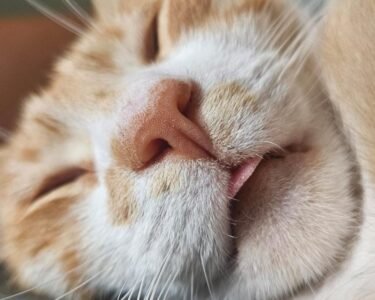Dental disease is one of the most common conditions treated by White Cross Vets in Penn, with some dogs and cats needing multiple or even all of their teeth extracted as a result.
According to vet Tom Ward, the costly impact of pet tooth decay is more prevalent in certain dog breeds including spaniels, poodles, poodle crosses and terriers, but it can affect any dog or cat.
Tom said: “Many owners think it’s normal for their pet to have bad breath but it’s not and can often be a strong sign that something is wrong.
“Plaque and tartar accumulation on teeth leads to the gums becoming inflamed and smelly. If left untreated this can cause root exposure and abscess formation.
“Ideally dogs and cats should have their teeth brushed every day with a dog or cat enzymatic toothpaste and toothbrush, but we hardly see any cases where this happens.
“It’s not easy to find the time, and some dogs and cats really don’t like it, but it’s very important to keep on top of their oral health where possible, in order to avoid gum inflammation, pain and extractions. The key is to do it regularly and use positive training methods such as treats.
“Annual dental exams are recommended and can be done at your pets yearly booster, from these exams your veterinary surgeon or nurse will be able to advise you if further dental work is recommended.
“If teeth brushing is a struggle your vet can recommend other ways in which to try to reduce plaque accumulation, such as specific diets, chews, additives and mouthwashes.
“Another issue is that lots of pet insurance policies do not cover dental work, which is a real shock to some owners. Costs for extractions can really range in price, so it’s important to check if dental work is included in a policy when it’s taken out or renewed.”
It is estimated that over 80 per cent of dogs and cats suffer with dental problems, particularly after the age of three.
If left untreated, this can cause irreversible damage to the teeth, gums and jaw bones.
Tom added: “Stopping the build-up of plaque is the only way of preventing dental disease. The plaque harbours bacteria that can infect the gum tissue and the roots of the teeth causing disease and tooth loss.
“In severe cases, bacteria can also enter the blood stream and cause damage to other organs like the heart, liver and kidneys and can even result in sepsis.”
Some pets suffering from poor dental health will display tell-tale signs including persistent bad breath, sensitivity around the mouth, loss of appetite, difficulty chewing, pawing at the mouth, bleeding, inflamed receding gums, visible tartar and loose or missing teeth.
However, many pets can show surprisingly few symptoms, which highlights the importance of regular veterinary check-ups.
White Cross Vets offers free dental check-ups and will also demonstrate how to brush teeth. More information is available at whitecrossvets.co.uk/advice/dental-care-and-your-pet




